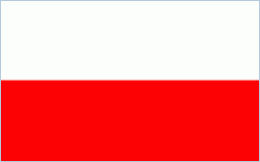
Further volumes of this series
Confronting the Holocaust. Documents on the Polish Government-in-Exile’s Policy Concerning Jews 1939–1945
Editor: Piotr Długołęcki
Warsaw 2022
ISBN 978-83-66091-95-5
Pages: XC + 1121
The volume Confronting the Holocaust. Documents on the Polish Government-in-Exile’s Policy Concerning Jews 1939–1945 is a full English translation of the accompanying source publication to the Polish Diplomatic Documents series which came out in its Polish version in 2021. However, this edition was subjected to some changes tailoring it to the English-speaking reader. This includes an extended introduction, modified edition rules as well as supplementing the documents with a larger number of editorial footnotes.
The publication contains 554 archival documents (as well as many others cited in footnotes) concerning the conditions and mechanisms of the actions implemented by the Polish Government in Exile towards the Jewish population during World War II. It illustrates the systemic and mass nature of the actions of the Polish diplomatic and consular service on the assistance and rescue of Jews during all stages of the war by bringing together the activities of the President, the Prime Minister and individual ministries and offices, but above all show the permanent work of the Polish diplomatic and consular posts and the relief agencies of the Ministry of Labour and Social Welfare and the Polish Red Cross.
Given the fact that the largest group of people of Jewish nationality in Europe lived in Poland, it was the Polish authorities and diplomatic posts that were asked for assistance by the most numerous group of people at risk. In consequence, the activities of the Polish offices were much more intense than the activities of the representations of the other Allied and neutral countries. The actions documented in this volume allow to put forward a thesis that Polish officials and diplomats organised one of the largest relief actions to help Jews, carried out by the state diplomatic services during World War II.
The archival materials included in the volume show the whole spectrum of efforts undertaken, documenting information activities (about the situation of Jews in occupied Poland), propaganda activities (aimed at mobilising the international community to prevent the Holocaust) and legal activities (undertaken with the goal to file criminal charges against the perpetrators). Above all, they illustrate direct aid activity consisting in finding safe havens or enabling people in danger to flee. They highlight that the extensive aid effort was not incidental, but was one of the most important aspects of the refugee policy of the Polish Government in Exile.
The vast majority of documents included in the publication has not been published so far. The source base of the volume consists of the documents from 10 national and foreign archives – i.e. the Archives of Modern Records in Warsaw, the American National Archives at College Park, the Hoover Institution in California, the Polish Institute of Arts and Sciences of America in New York, the Jozef Pilsudski Institute of America, the UK National Archives, the Polish Institute and Sikorski Museum in London, the Israeli Yad Vashem, the Polish Pontifical Institute of Ecclesiastical Studies in Rome and Archivum Helveto-Polonicum in Freiburg, Switzerland.
The publication also includes a preface as well as an index of personal names and a subject index which facilitate the search of necessary information.
